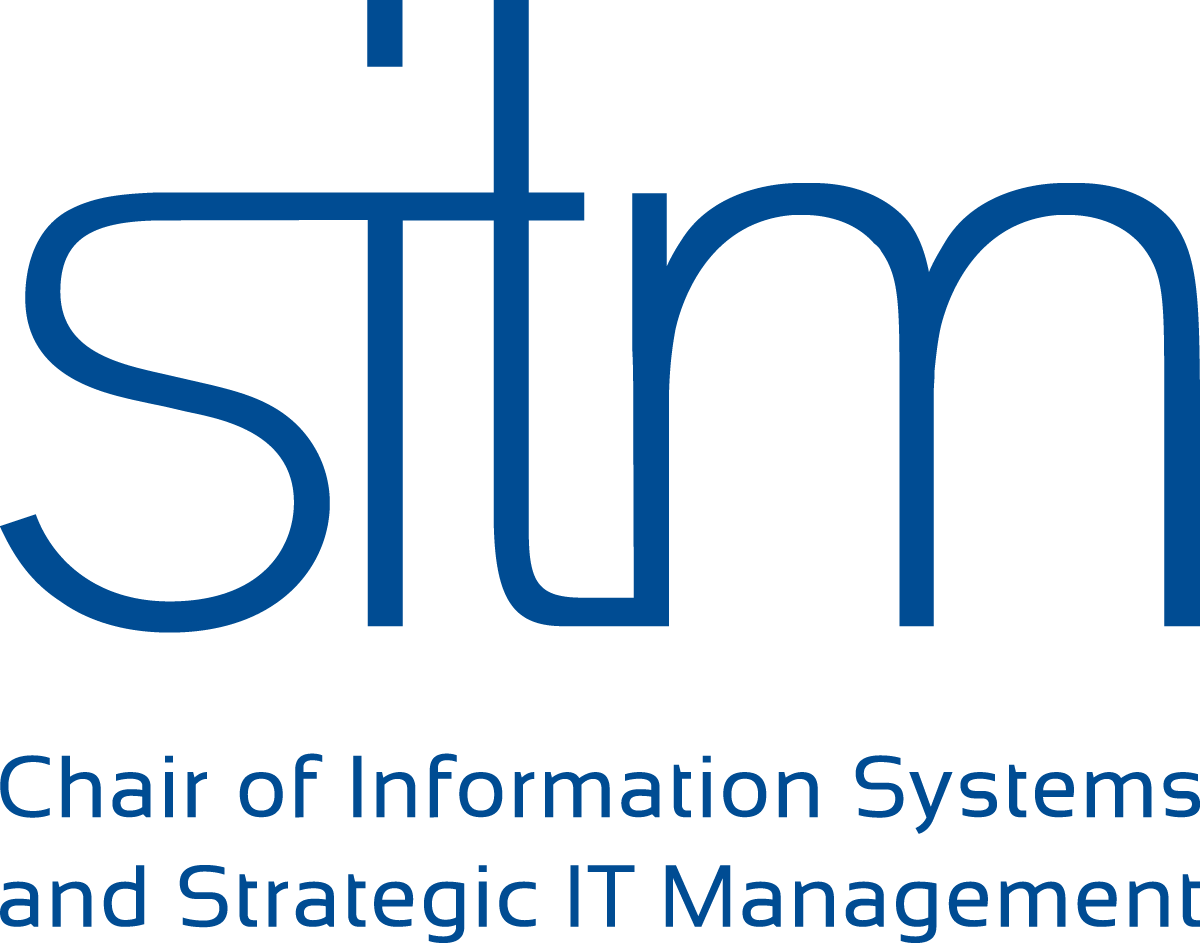(Agile) IT Project and Project Portfolio Management
IT Project and Project Portfolio Management
In today’s technologically driven business environment, firms are required to engage in an increasingly large number of projects. Part of this challenge is to holistically manage all running IT projects and new proposals during all stages of their life cycle [1]. The situation becomes even more demanding, because more recent phenomena like the “digital transformation,” require flexible adjustments of IT project portfolios and pressure organizations to deliver projects at an increasing and unparalleled rate [2, 3]. While IT project management (IT PM) focuses primarily on a management technique, which is used to organize, control, steer, and execute individual projects with an IT focus, IT project portfolio management (IT PPM) provides a centralized view of all running IT projects and enables firms to manage a large number of projects [1]. However, the Standish Group estimates that only about 29% of IT projects are within their estimated costs, on schedule, and deliver all critical requirements [4]. Another 52% of these projects are challenged (i.e. over budget, late, or fail to provide critical requirements), while the remaining 19% are simply abandoned due to huge cost or schedule overruns, or major deficiencies. Given that IT projects are usually the dominant part of many industries’ capital expenditure budget [5], it is not surprising that their success or failure can have a significant impact on a company's bottom-line. Most often, companies with failed projects are unable to learn from their failures due to a lack of organizational learning and capability building [7]. More interestingly, organizations that had successful IT projects are unable to replicate that success in future projects [6]. By investigating different areas of interest, we aim to contribute to research and practice. Our overarching research questions in this field are:
- How do organizations develop sustainable IT PM/PPM capabilities over time?
- How can organizations manage their IT project portfolio more sustainably, thus allowing for quick responses to new strategic trajectories?
- What is the role of executives and line managers in IT PM/PPM success?
IT PM/PPM Capability Building
IT PM/PPM capabilities cover the ability to align IT projects with the strategic direction of the organization so that the organization can maximize the monetary value of the organizational assets while completing as many projects as are feasible and beneficial to execute [8, 9]. Thus, IT PM/PPM capability building may enhance an organization`s performance, because it enables the implementation of necessary change in an efficient and effective way [8]. However, organizations require significant time and investments to develop sustainable IT PM/PPM capabilities, and even then they still often fail [8]. One of the main issues in this context is that IT PM/PPM is rarely seen as a long-term organizational phenomenon [10, 11] and current research has neglected to provide a comprehensive understanding of how organizations can build sustainable IT PM/PPM capabilities. This lack of understanding may inhibit organizations’ attempts to align IT PM/PPM with their strategy and may lead to significantly less successful project execution. Against this backdrop, we seek to answer how organizations develop sustainable IT PM/PPM capabilities over time and why some organizations are successful, while other organizations fail to evolve those IT PM/PPM capabilities.
Developing Flexible IT PPM
Furthermore, our research seeks to provide a novel perspective on IT PPM to respond to rapidly changing requirements. In many cases, organizations reallocate scarce resources and reprioritize projects to address short-term needs, often pressured by upper executives. This usually leads to a significant project overload, stress from multitasking, schedule delays, or a missing strategy alignment [12, 13]. The traditional IT PPM seeks to realize long-term strategic objectives while it depends on the annual budgeting process [14]. Considering the oftentimes disruptive and short-term nature of today’s digital environments and markets, the traditional IT PPM is not designed to meet current challenges such as quick and beneficial project execution or an adaptive portfolio reconfiguration [3]. Research has not yet focused much on this discrepancy. To overcome this gap, we investigate the core principles that allow IT PPM refinement for a short-term focused dimensioning while adopting certain mechanisms such as shorter and iterative planning cycles.
IT Project Governance (ITPG)
Current research indicated that the high failure rate of IT projects is often not a result of ineffective project management practices, but rather of ineffective engagement with stakeholders [15]. Further research indicates that ineffective engagement with stakeholders stems from agency problems, such as preference divergence between project stakeholders that can influence the IT projects’ success [15]. In the context of IT projects, these agency problems are mainly caused by inappropriate social interaction among project stakeholders [15]. Therefore, we postulate that managers need to define decision-making rights and responsibilities, and give an overview of these aspects’ contribution to business success. However, current research has neglected agency problems in terms of project organization. To address this issue, we use agency theory as a conceptual framework to investigate agency problems in the project organization and to rely on institutional theory as the theoretical lens for evaluating inappropriate social interaction among project stakeholders in the ITPG implementation process.
Duration
2009–present (ongoing)
Involved researchers
Prof. Anol Bhattacherjee, Ph.D.
Dr. Fedi El Arbi
Dr. Michael Kaiser
Student contributions
Thomas Müller
Publications
- Hoffmann, D.; Müller, T.; Ahlemann, F.: Balancing Alignment, Adaptivity, and Effectiveness: Design Principles for Sustainable IT Project Portfolio Management. In: Proceedings of the 25th European Conference on Information Systems (ECIS). Guimarães, Portugal 2017. Full textCitationDetails
- Mohan, K.; Ahlemann, F.; Braun, J.: Realising value from projects: a performance-based analysis of determinants of successful realisation of project benefits. In: International Journal of Project Organisation and Management, Vol 8 (2016) No 1. Full textCitationDetails
- Drechsler, A.; Ahlemann, F.: Toward a General Theory of Agile Project Management – A Research Design. In: Proceedings of the 23nd European Conference on Information Systems (ECIS). Münster, Germany 2015. Full textCitationDetails
- Ahlemann, F.; Kaiser, M.: The Effects of Intra-Organizational Agency Problems on IS Project Alignment - Arbi, El; . In: Proceedings of the 20th European Conference on Information Systems (ECIS 2012). Barcelona, Spain 2012. Full textCitationDetails
- Kaiser, M.; El-Arbi, F.; Ahlemann, F.: Successful Project Portfolio Management Beyond Projects Selection Techniques - The Role of Structural Alignment. In: International Journal of Project Management., Vol 33 (2015) No 1, p. 126-139. Full textCitationDetails
- Ahlemann; F.; Arbi, El; F.; Kaiser; M.; Heck; A.: A Process Framework for Guiding Prescriptive Research in The Project Management Field. In: International Journal of Project Management (2013). Full textCitationDetails
- Kaiser, M.; El Arbi, F.; Ahlemann, F.; Bhattacherjee, A.: IT Project Governance Implementation as Institutionalization Process: Evidence from the Financial Services Industry. In: Proceedings of the 19th European Conference on Information Systems (ECIS 2011). Helsinki, Finland 2011. Full textCitationDetails
- Kaiser, M.; Ahlemann, F.: Measuring Project Management Information Systems Success - Towards a Conceptual Model and Survey Instrument. In: 18th European Conference on Information Systems. Pretoria, South Africa 2010. Full textCitationDetails
References
- Cooper, R.G., Edgett, S.J., Kleinschmidt, E.J.: New Problems, New Solutions: Making Portfolio Management More Effective. Research Technology Management. 43, 18 (2000).
- Lucas, H.C., Agarwal, R., Clemons, E.K., El Sawy, O.A., Weber, B.W.: Impactful Research on Transformational Information Technology: An Opportunity to Inform New Audiences. MIS Quarterly. 37, 371–382 (2013).
- Karimi, J., Walter, Z.: The Role of Dynamic Capabilities in Responding to Digital Disruption: A Factor-Based Study of the Newspaper Industry. Journal of Management Information Systems. 32, 39–81 (2015).
- Standish Group: CHAOS Report 2014. (2014).
- PM Solutions Research: The State of the Project Management Office (PMO). (2014).
- Oz, E.: When professional standards are lax: the CONFIRM failure and its lessons. Communications of the ACM. 37, 29–43 (1994).
- Lyytinen, K., Robey, D.: Learning failure in information systems development. Information Systems Journal. 9, 85–101 (1999).
- Killen, C.P., Hunt, R.A.: Dynamic capability through project portfolio management in service and manufacturing industries. International Journal of Managing Projects in Business. 3, 157–169 (2010).
- Belliveau, P., Griffin, A., Somermeyer, S.: The PDMA ToolBook 1 for New Product Development. John Wiley & Sons (2004).
- Crawford, L.: Developing organizational project management capability: theory and practice. Project Management Journal. 37, 74 (2006).
- Killen, C.P., Hunt, R.A.: Robust project portfolio management: capability evolution and maturity. International Journal of Managing Projects in Business. 6, 131–151 (2013).
- Daniel, E.M., Ward, J.M., Franken, A.: A dynamic capabilities perspective of IS project portfolio management. The Journal of Strategic Information Systems. 23, 95–111 (2014).
- Zika-Viktorsson, A., Sundström, P., Engwall, M.: Project overload: An exploratory study of work and management in multi-project settings. International Journal of Project Management. 24, 385–394 (2006).
- Martinsuo, M., Killen, C.P.: Value Management in Project Portfolios: Identifying and Assessing Strategic Value. Proj Mgmt Jrnl. 45, 56–70 (2014).
- El Arbi, F., Ahlemann, F., Kaiser, M.: The Effects of Intra-organizational Agency Problems on IS Project Alignment. In: Proceedings of the 20th European Conference on Information Systems. , Barcelona, Spain (2012).



